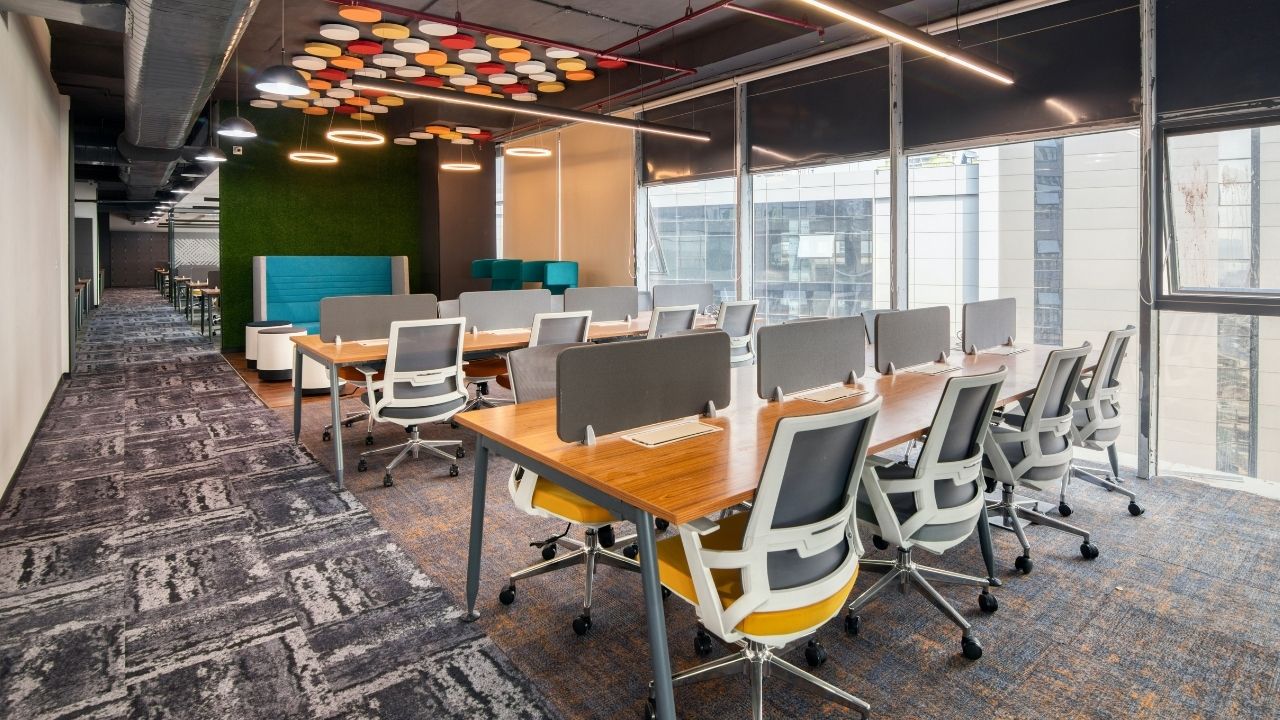As the world reopens, the flexible workspace sector is entering into a new era that is riddled with mergers, sales, collapses, and acquisitions.
This week, space-as-a-service operator NewFlex announced that it has been chosen to manage the workplace community and incubator at the 62-story AXA Investment Managers’ office building in London.
The space, which will be called The Exchange, will focus on supporting startups and small businesses, taking up 14,000 square feet in the tower’s seventh floor.
While operators that have survived the pandemic are moving forward with operations, the future will provide an even greater challenge for these company’s sustainability.
“It’s more than plausible that this is the real moment of stress, not the pandemic,” said Steve Jude, CEO of NewFlex. “There could also be risks in management agreements if landlords see opportunities to let that floorspace on a good lease — and if they can, we’d encourage them to take it.”
Jude is referring to landlords that opted for management agreements throughout the pandemic in an effort to offload potential risks. Now, these owners may want to return to traditional leases, especially as companies usher their workers back into the office.
This could leave many operators in a predicament, as it also coincides with rising costs for utilities and other overheads.
“Having survived Covid, we’ll now go through a period of two years of mergers and acquisitions, either because operators are struggling, or they are trying to grow faster than they could organically and mergers or acquisitions are the route,” said Cal Lee, founder of Workthere, the flex space consultancy of Savills.
This fear of this risk appears to be permeating throughout the world’s largest operators, too. Just recently, WeWork partnered with flexible workspace platform Upflex, which will allow WeWork members to access Upflex’s portfolio of over 4,800 third party spaces.
However, smaller operators are less likely to gain much from such networking as previously thought. Still, large flexible workspace companies that continue to expand their network will face their own risks.
“Lots of smaller operators didn’t survive 2020 and 2021, and because we’ve already had a market sorting, I hope that’s done,” said Amy Taylor, head of flexible office advisory at Cushman & Wakefield. “But the harsh reality is that one big occupier pulling out may mean an operator has to close a whole hub.”



 Dr. Gleb Tsipursky – The Office Whisperer
Dr. Gleb Tsipursky – The Office Whisperer Nirit Cohen – WorkFutures
Nirit Cohen – WorkFutures Angela Howard – Culture Expert
Angela Howard – Culture Expert Drew Jones – Design & Innovation
Drew Jones – Design & Innovation Jonathan Price – CRE & Flex Expert
Jonathan Price – CRE & Flex Expert












